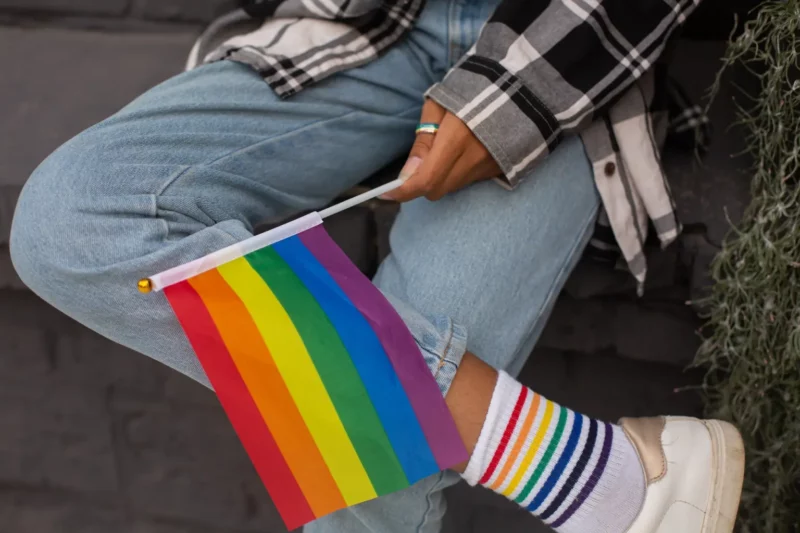Choosing to Love and Protect Black LGBTQ+ Students
Share
Explore Our Galleries
Breaking News!
Today's news and culture by Black and other reporters in the Black and mainstream media.
Ways to Support ABHM?
By Melanie Willingham-Jaggers, Word in Black
Censorship laws around the United States harm Black queer students, who are already among the most marginalized and excluded youth in the country.

Education is the cornerstone of democracy, and right now, it’s under attack.
In September, the Center for Democracy and Technology released a new report exposing public schools in the U.S. for filtering and blocking LGBTQ+ and race-related content at higher rates than other texts. From limiting lessons on Black history to banning books with LGBTQ+ characters, it comes as no surprise that LGBTQ+ and Black students are feeling less safe at school.
According to GLSEN’s National School Climate survey, 82% of LGBTQ+ youth reported feeling unsafe in school — and these censorship laws only cause more harm to Black queer students, who are already some of the most marginalized and excluded youth in our nation.
[…]
So what can we do when school districts are signaling to LGBTQ+ and Black students that they don’t belong and are refusing them equal representation in a facility that is meant to foster a nurturing learning environment?
As a collective, we must rise up and educate our youth about the diverse and complex life experiences of the citizens of our world so that our next generation of leaders can live and act powerfully within that world.
Read the author’s suggestions for rising up.
Fortunately, California’s governor signed a bill banning such censorship.









Comments Are Welcome
Note: We moderate submissions in order to create a space for meaningful dialogue, a space where museum visitors – adults and youth –– can exchange informed, thoughtful, and relevant comments that add value to our exhibits.
Racial slurs, personal attacks, obscenity, profanity, and SHOUTING do not meet the above standard. Such comments are posted in the exhibit Hateful Speech. Commercial promotions, impersonations, and incoherent comments likewise fail to meet our goals, so will not be posted. Submissions longer than 120 words will be shortened.
See our full Comments Policy here.